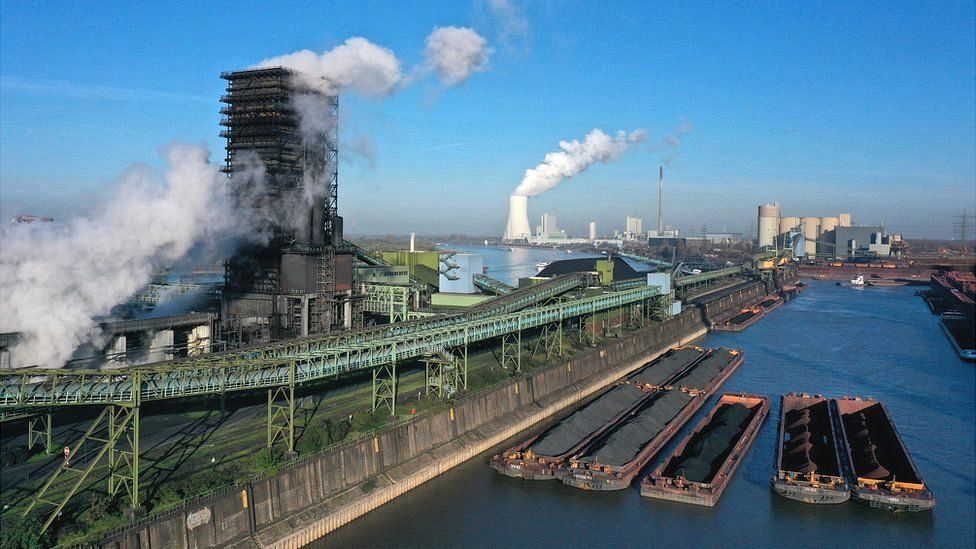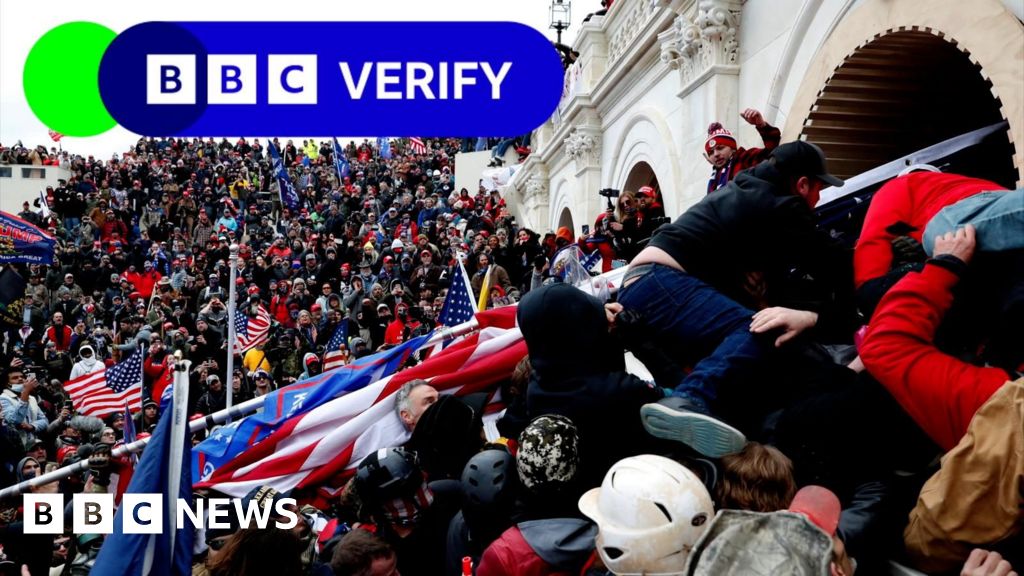ARTICLE AD BOX
By Jenny Hill
BBC Berlin correspondent
 Image source, Getty Images
Image source, Getty Images
Germany had vowed to ditch coal but is now restarting mothballed, coal-fired power stations
Germany's leading energy expert says she's living in a nightmare. What's worse, she saw it coming.
For 15 years Claudia Kemfert says she tried to warn politicians and the public that the country was too reliant on Russian energy.
Until recently Germany bought more than half of its gas from Russia. She advised Berlin to find other sources and focus more on renewables. And she warned against the construction of the Nord Stream 1 pipeline through which Germany receives much of its gas.
"That's what I did over the last 15 years, repeating and repeating and repeating. Hoping that what's happened now would never happen," she says, her frustration evident.
Vladimir Putin's decision to, in effect, weaponise Russian gas exports has sent Germany into a tailspin. Moscow has blamed essential maintenance on the Nord Stream pipeline for a recent reduction, then complete shut-off, of supply.
Few in Berlin are buying that. Even fewer believe Russia can be trusted to deliver what Germany needs for the coming winter.
Image source, Getty Images
Image caption,On Wednesday the European Commission urged the EU's 27 member states to cut their gas use by 15% until March
Germany's coalition government is scrambling to secure alternative energy supplies.
It is planning a number of floating terminals for the reception of liquified natural gas (LNG). It is trying to secure supplies from other countries, including Qatar.
Images of German Economy Minister and Green politician Robert Habeck going cap in hand to the Middle East for fossil fuels were greeted with derision by some at home.
But the government is having to rethink some of its ideals.
There is a fierce debate over whether to halt the decommissioning of Germany's nuclear power stations. The Greens, who are part of Olaf Scholz's coalition government, loathe nuclear power.
And, having vowed to leave coal behind, Germany is now firing up mothballed power stations: a decision that even Mr Habeck admits is "depressing".
It is why, at a terminal on the banks of the River Rhine in Duisburg, you will find the air thick with coal dust. Barges, laden with black mounds of coal, unload here with increasing frequency.
Coal by itself will not be enough to tackle Germany's looming energy shortage
The rising demand for coal is good business for the shipping companies here. In fact, they're struggling to keep up with orders. But Martina Becker, a manager at HGK shipping, squints out at the river and looks concerned.
"For us of course it's good that so much coal is being transported on the water," she says. "But it's a fine line because soon industry might have to shut down if the gas runs out or has to be rationed. Then we could face a recession."
Industry leaders fear that is a realistic prediction too. Without Russian gas, they say, the country will face catastrophic consequences. A proposal that would allow businesses to auction surplus gas is under discussion, but time is running out.
Even as Europe swelters through a heatwave, all eyes are on the coming winter.
German gas stores are 66% full but experts say that level needs to rise to 80-90% by the start of the so-called heating season.
The German government is urging everyone to save energy, and has even recommended that people take shorter showers. The country is at the second of three emergency alert levels; should the third be triggered, rationing is a possibility.
It is yet another worry for hotelier Robert Tepes, whose business is still recovering from Covid shutdowns.
The sound - and smell - of frying meat wafts into his restaurant as he tells me that without gas it would be the death of hospitality: "If we don't get gas anymore, we can't cook. The kitchen closes, nothing else we can do. We won't be able to heat. I don't believe it'll come to that, but we have to act now because we mustn't let it come to that."
Robert Tepes fears the energy crisis will spell the death of hotels and restaurants in Germany
Of one thing, Germans can be certain. Energy will cost more.
"Economically it's a catastrophe," says Mr Tepes, who wonders how much he could pass on to his customers.
"Before Corona we would pay about €2,000 a quarter for gas. Last time we filled our tank we paid €5,000 before tax and that was two months ago. What it will be two months from now? That's my biggest worry."
The gas shortage is not, of course, just a German problem. But as one of the European countries which relied more heavily on Russia, it is among those hoping for solidarity from EU member states. And a Germany that crashes into recession would, of course, have grave economic consequences for the rest of Europe.
Claudia Kemfert refers to expert modelling which shows that, even if Russia turns off the taps for good, Germany could still pull through the winter, but only if it acts wisely.
"It could be bad, there could be shortages if we don't prepare enough. We have to import gas from other sources, we have to diversify the import even further."
BBC
We have to fill the storage as high as possible and we need to save more energy, we need to get the demand for gas down and also to increase renewables
That last point of cutting demand and increasing renewables is important, because some here see an opportunity.
Most European governments are trying to turn away from Russian energy and its financial contribution to Vladimir Putin's war chest. And despite what German ministers insist is only a temporary increase in the use of coal, there is political will and growing public pressure to do more to counter climate change.
Russia's president may yet succeed in his aim to trigger political and economic chaos in the West. Much depends now on how countries like Germany and blocs like the EU respond.
But it is just possible that, by restricting energy supplies, Mr Putin unwittingly accelerates European efforts to end reliance not only on Russian energy but on fossil fuels altogether - for good.

 2 years ago
20
2 years ago
20








 English (US) ·
English (US) ·